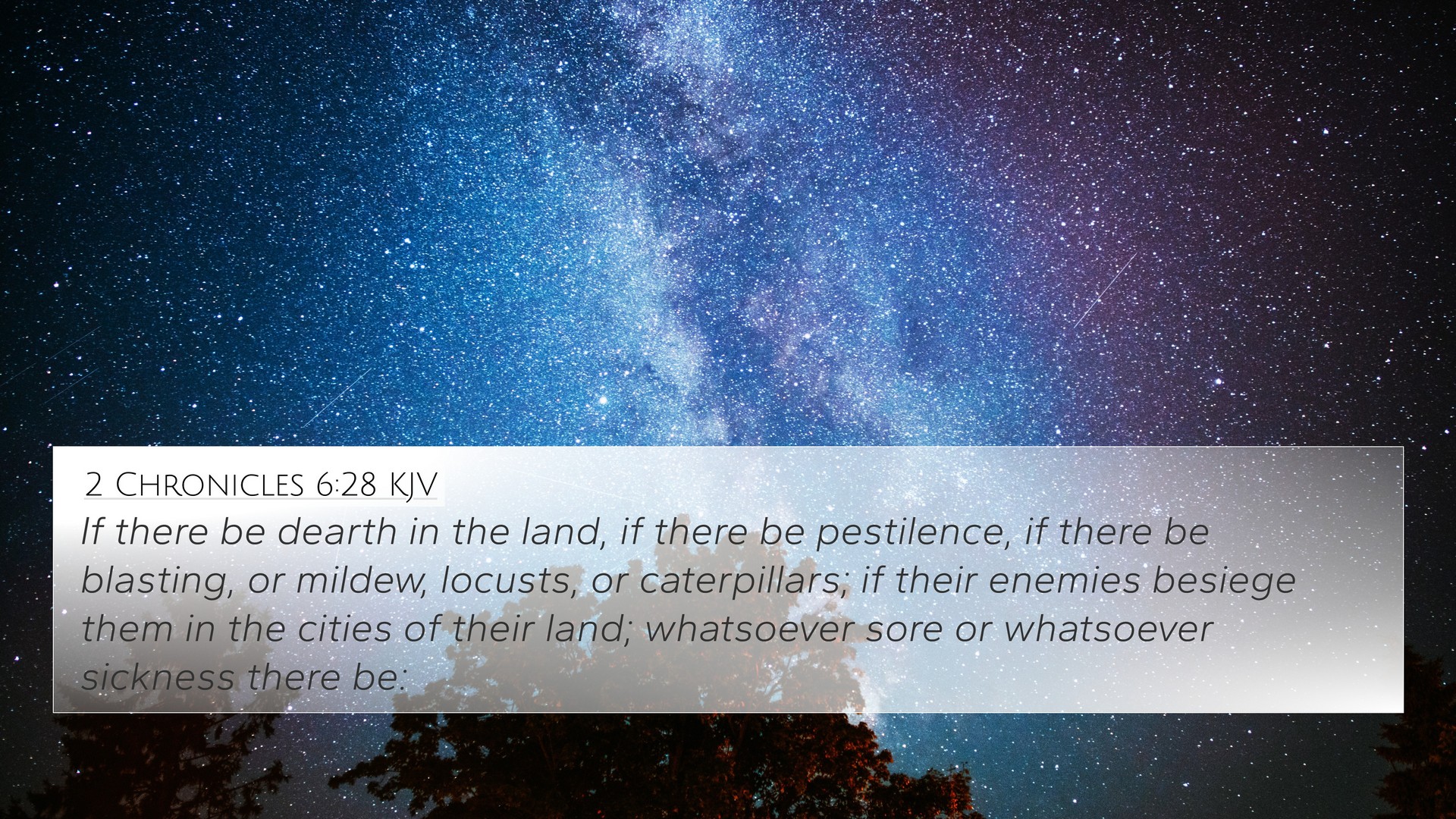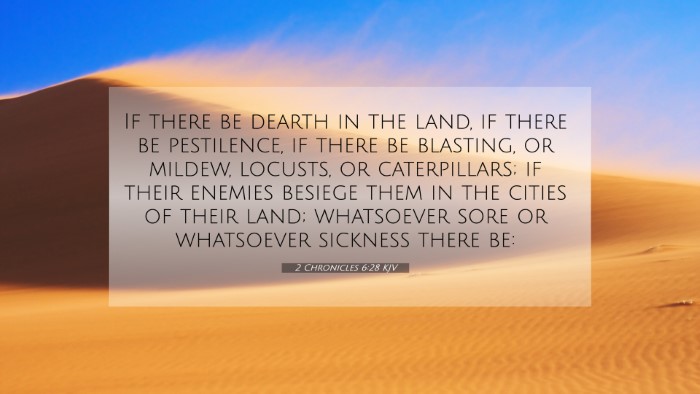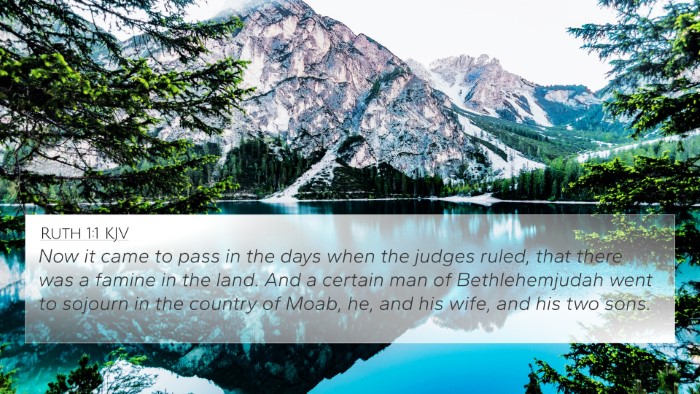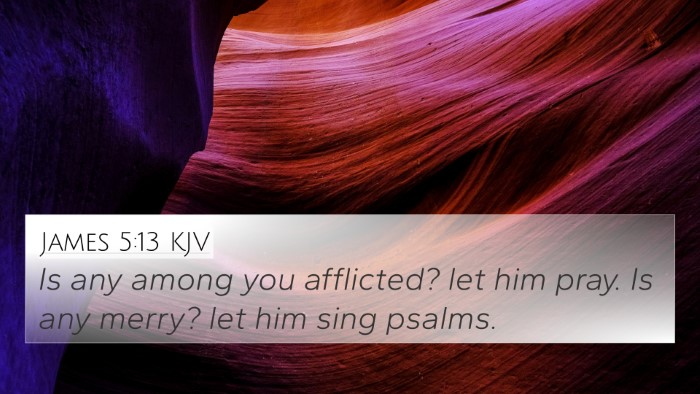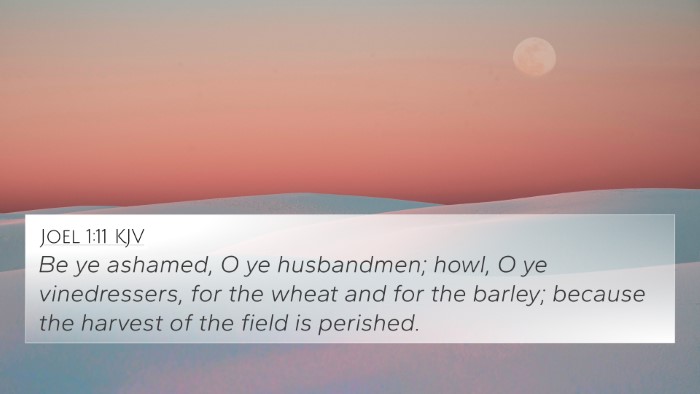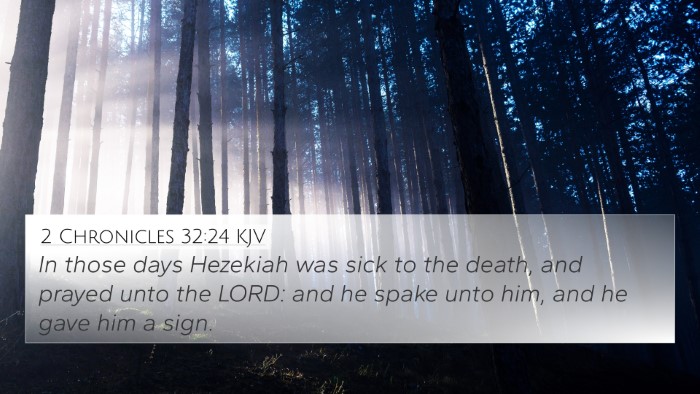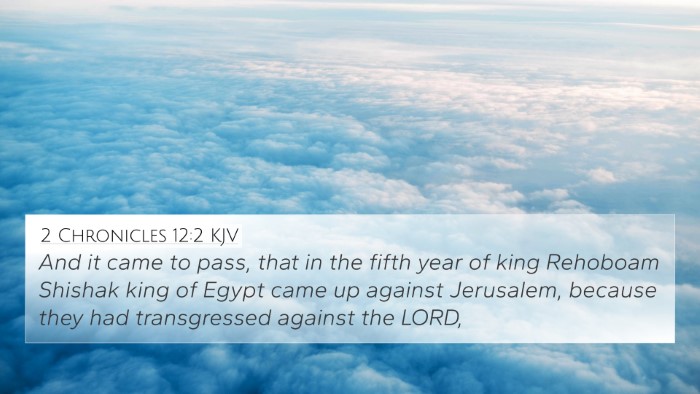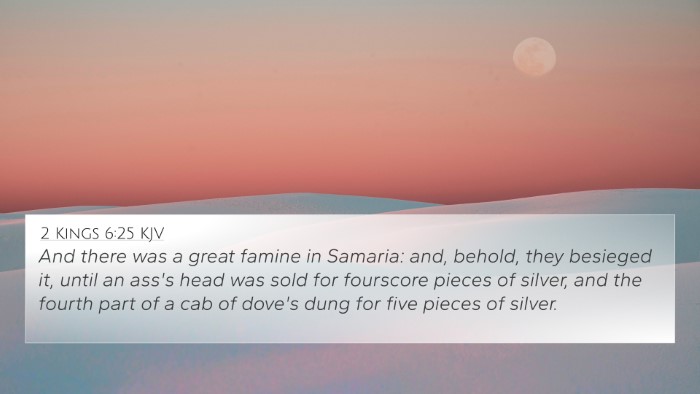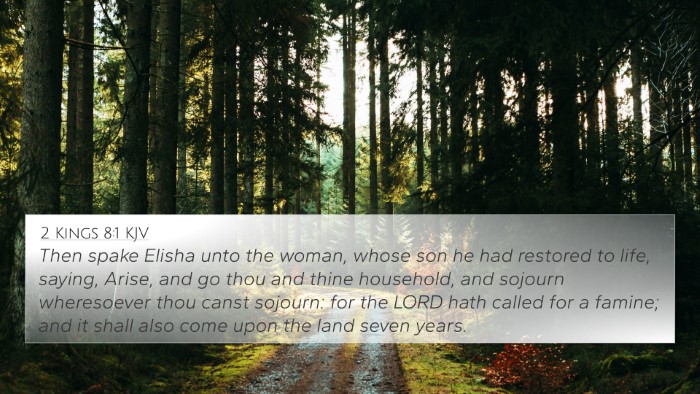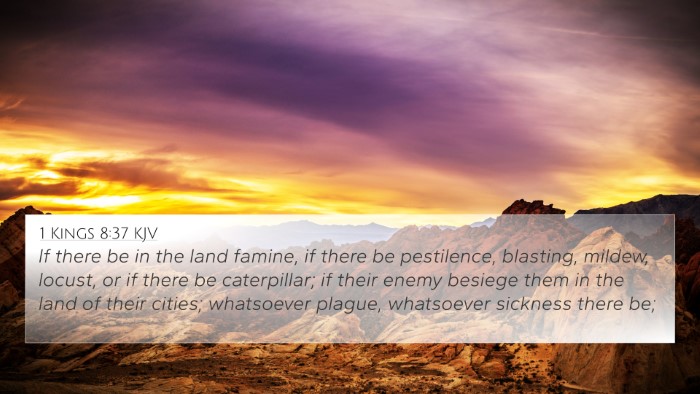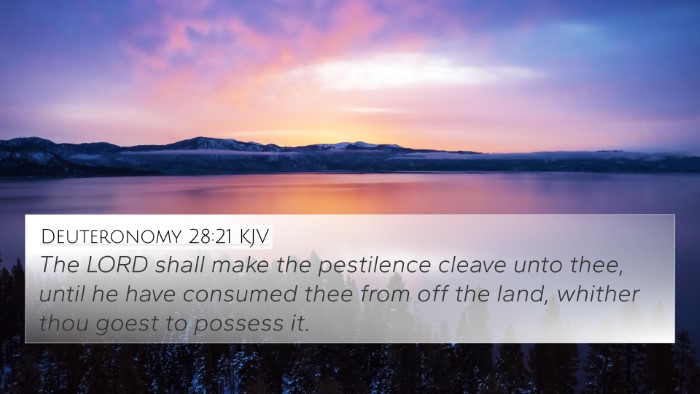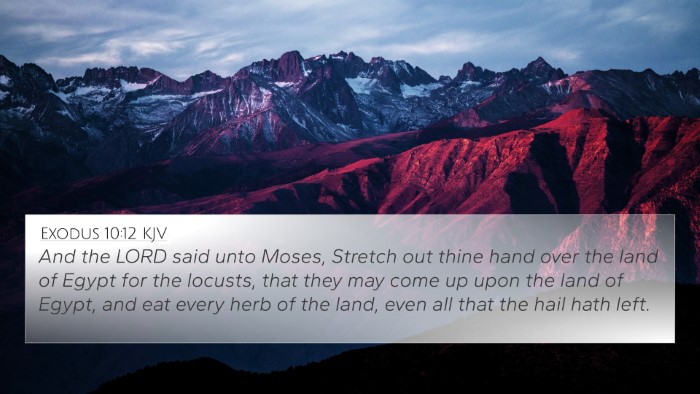Understanding 2 Chronicles 6:28
Verse: "If there be dearth in the land, if there be pestilence, if there be blasting, or mildew, locusts, or caterpillars; if their enemies besiege them in the cities of their land; whatsoever sore or sickness there be: "
Summary of Meaning
This verse from 2 Chronicles reflects Solomon's dedication of the temple and his prayer to God regarding the challenges that the people of Israel might face. Here, he acknowledges the various forms of calamity that may befall the nation, invoking God’s mercy in times of hardship. Solomon is not only recognizing the potential suffering but also emphasizing the need for repentance and divine intervention.
Commentatory Insights
-
Matthew Henry:
Henry highlights that the verse symbolizes the inevitable trials that can occur in a nation, whether they be natural disasters or external threats. He indicates that such adversities serve as a reminder for individuals and communities to seek God’s favor through repentance and prayer.
-
Albert Barnes:
Barnes discusses the specific afflictions mentioned, pointing out the various agricultural and societal challenges that could impact Israel's wellbeing. He notes the significance of the listing of calamities, suggesting that it illustrates God's comprehensive awareness of human suffering and His ability to provide hope and restoration.
-
Adam Clarke:
Clarke elaborates on the verse by emphasizing the importance of turning to God as a refuge during crises. He states that, regardless of the trouble—be it starvation, disease, or military siege—Israel is called to acknowledge their plight and reach out to God in supplication.
Biblical Cross-References
The following verses relate to the themes presented in 2 Chronicles 6:28:
- 2 Chronicles 7:13-14: Discusses God's conditions for healing the land during times of calamity.
- Deuteronomy 28:15-68: Outlines curses for disobedience, including pestilence and famine.
- 2 Chronicles 20:9: Highlights the reliance on prayer during national crises.
- 2 Kings 25:3: Describes a siege and the resulting suffering of the populace.
- James 5:14-15: Encouragement to pray for healing in times of trouble.
- Psalms 30:7: Reflects on God’s favor during afflictions.
- Isaiah 41:10: God's reassurance to be with His people during fear and calamity.
- Matthew 14:30: A reminder of reliance on faith during trials.
- Philippians 4:6-7: Encouragement to bring concerns to God in prayer.
- Romans 8:28: Assurance that God works for the good of those who love Him, even in hardship.
Thematic Connections
This verse prompts us to examine the connections between divine suffering, repentance, and restoration throughout the Bible. The themes resonate with both Old and New Testament teachings, demonstrating the continuity of God's expectations for His people.
Cross-Referencing Biblical Texts
Cross-referencing such passages forms a intricate web of understanding in the biblical narrative, showing how various authors and contexts address the human condition and God's sovereignty.
Tools for Bible Cross-Referencing
To delve deeper into understanding these connections, various tools exist such as:
- Bible concordances.
- Bible cross-reference guides.
- Comprehensive Bible cross-reference materials.
- Cross-reference Bible study tools.
Conclusion
In summary, 2 Chronicles 6:28 reminds us of the nearness of trials and the vital importance of seeking God's mercy through prayer and repentance. It’s an invitation to understand the broader context of divine intervention amid human suffering, prompting further exploration into scripture through cross-referencing.
Further Study Suggestions
For those interested in deeper engagement with the themes of 2 Chronicles 6:28, consider the following:
- How do the themes in 2 Chronicles connect with those in the Gospels?
- What are the parallels between Old Testament prophecies and New Testament fulfillments?
- Identifying cross-referenced themes in the Bible can enhance one’s understanding of scripture’s cohesive message.
